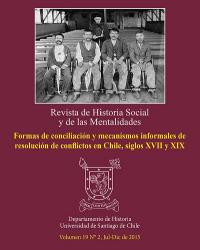“ME URGEE SE ME SUMINISTRE DE SUS BIENES LOS ALIMENTOS”: FEMALE STRATEGIES IN DOMESTIC DISPUTE RESOLUTION. 1800-1850, CENTRAL VALLEY OF CHILE
DOI:
https://doi.org/10.35588/3x4rzj70Keywords:
Married women, Single women, Negotiated justice, AlimonyAbstract
This article aims to analyze the practices of solving women domestic conflicts in front of the justice in the Partidos of Quillota, Aconcagua and Santiago between 1800 and 1850, through a review of civilian trials for food, by alimony brought by married women and single. The analyzed period represents a process of legitimizing an institutional legal system. However, conflict resolution practices were accompanied by other border practices, where law and custom were in constant dialogue. In this context, we propose that women used to resort to institutional justice male claiming protection for themselves and their children, as part of a host of strategies that were part of negotiated justice, which meant, by these, a development of resistance strategies involving gender, legal culture and advertising the conflict. Consequently, we distinguish married women, protected by the institution of marriage, who developed strategies linked to hegemonic ideals, in order to obtain a pension corresponding to their needs. In other hand, single women had to resort to wider strategies, that committed the solidarity of its close, disclosure of conflict and women's honor
Downloads
Downloads
Submitted
2016-01-05Published
Versions
- 2024-12-11 (2)
- (1)
Issue
Section
License
Copyright (c) 2024 Revista de Historia Social y de las Mentalidades

This work is licensed under a Creative Commons Attribution 4.0 International License.













